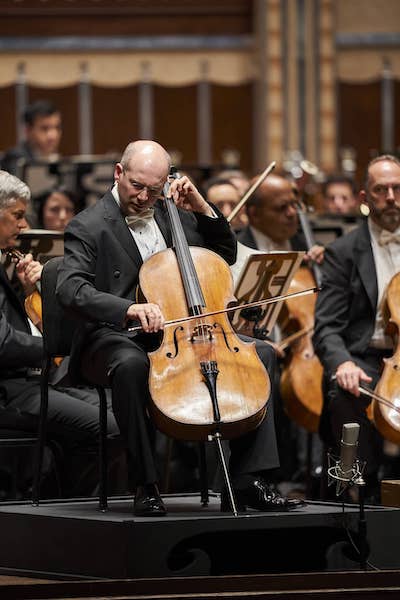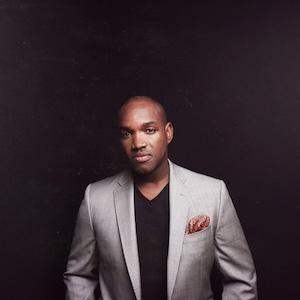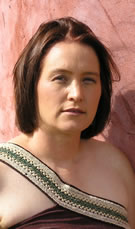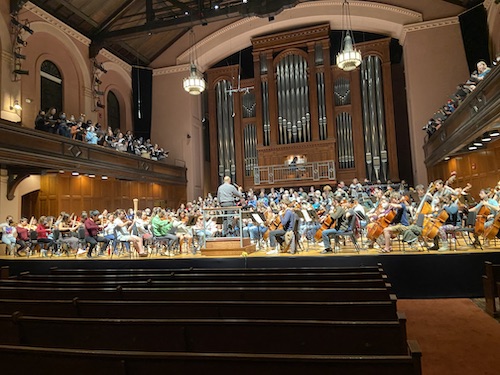by Jarrett Hoffman

•Tonight: Kosower plays Bloch’s Schelomo with Cleveland Orchestra, YSU presents a faculty/alumnus guitar duo, and Oberlin combines orchestra and choir for music by R. Nathaniel Dett
•Interesting reads: digging deeper into Dett, and praise for Lawrence Brownlee
•Almanac: the Medieval-influenced contemporary music of Zana Clarke
HAPPENING TODAY:
Three events, all at 7:30.
At Severance Music Center, Nikolaj Szeps-Znaider leads The Cleveland Orchestra in a concert that features Mark Kosower as soloist, in Ernst Bloch’s Schelomo – Hebraic Rhapsody for Cello and Orchestra. (Kosower and Mike Telin discuss the work here.) Also on the program: Karim Al-Zand’s Lamentation On The Disasters of War and Beethoven’s “Eroica” Symphony. Tickets are available online. (Photo of Kosower by Roger Mastroianni.)
At Youngstown State’s Bliss Recital Hall, a faculty member (François Fowler) and an alumnus (Christopher Mrofchak) join forces as the Fowler/Mrofchak Guitar Duo. They’ll play works by J.S. Bach, Mario Castelnuovo-Tedesco, and Fowler himself — namely, his latest composition, Four Letters to Wormwood (after C.S. Lewis) for 2 guitars. Attendance is free.
And at Oberlin Conservatory’s Finney Chapel, another teaming-up will take place. As a preview for a performance at Carnegie Hall in January, Raphael Jiménez will lead The Oberlin Orchestra and three of the school’s choral ensembles — Gospel Choir, Musical Union, and Oberlin College Choir — in R. Nathaniel Dett’s oratorio The Ordering of Moses.
Soloists include members of the faculty (soprano Mathilda Edge, baritone Timothy LeFebvre), guest artists (mezzo-soprano Krysty Swann), and an alum (tenor Limmie Pulliam). The program also includes Brahms’ Tragic Overture and Iván Enrique Rodríguez’s A Metaphor for Power. It’s free, and there’s a livestream.
Speaking of that concert…
INTERESTING READS:
There’s an interesting piece from the Oberlin Communications staff that delves into the ideas behind the programming, and the historical context behind The Ordering of Moses, including R. Nathaniel Dett’s keen interest in using African American spirituals as the basis for his compositions. Read here. (Above: Oberlin orchestra and choirs in rehearsal.)

TODAY’S ALMANAC:
It’s Clarke Day.
English-born violist and composer Rebecca Clarke died on this date in 1979 in New York City. Since she’s been highlighted in previous Diary entries, here and here, we’ll shine a spotlight on a lesser-known, still-living Clarke, of no relation: Australian composer and multi-instrumentalist Zana Clarke, who was born on October 13, 1965.

A great example is her Swamp. Listen here, ignoring the shaky video, to enjoy a fascinating blend of the Medieval and the modern in this performance by Jo Arnott at the work’s premiere in 2005.
Among other activities, Clarke is the founder of the youth recorder ensemble Batalla Famossa and the founding director of Orpheus Music. That organization commissions and publishes new works for the recorder by Australian composers, in addition to putting on a Young Composer Series to encourage composing for the instrument.
It’s too bad Batalla Famossa doesn’t have a presence on YouTube, but click here for clips of the ensemble’s album The great emu war — a phrase that, as we all know, makes the ideal ending to any article.




